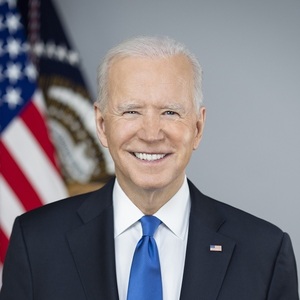Biden signs legislation to avoid rail strike

December 2, 2022
BY Erin Voegele
President Joe Biden on Dec. 2 signed legislation to implement tentative agreements reached between railroads and workers in September, avoiding an economically devastating rail strike that was set to begin Dec. 9.
The tentative agreement referenced in the legislation was approved by labor and management negotiators in September, with eight of 12 rail unions voting to approve the agreement ahead of legislative action.
The U.S. House of Representatives on Nov. 30 voted 290 to 137 to approve the legislation. The House also voted 221 to 207 to approve a separate resolution that would increase the number of paid sick leave days in the contract from one annually to seven annually.
Advertisement
The U.S. Senate voted 80 to 15 the following day to pass the main piece of rail legislation, but failed to pass the resolution to increase the number of paid sick leave days.
Biden signed the bill on Dec. 2. “Our nation’s rail system is literally the backbone of our supply chain, as you all well know,” he said. “And so much of what we rely on is delivered on our rail, from clean water to food and gas and every — every other good. A rail shutdown would have devastated our economy.”
U.S. ethanol producers are one of many industry sectors that would be hard hit by a rail strike. Several representatives of the ethanol industry are speaking out to applaud work by Congress and Biden to avoid the rail strike.
Advertisement
“We thank President Biden and members of Congress who overwhelmingly supported keeping our nation’s freight moving at this difficult time,” said Geoff Cooper, president and CEO of the RFA. “Shutting down the rails would have shut down our industry’s ability to provide lower-cost, low-carbon ethanol and other important coproducts like distillers grains to customers here at home and across the border to Canada and Mexico. More than 400,000 jobs across America are supported by the ethanol industry, and a long rail dispute would no doubt have put many of them at risk.”
“The American Coalition for Ethanol thanks President Biden for pressing Congress to pass legislation that resolves the rail dispute, as a strike would have had a domino effect on our industry, from the producers of the fuel to midstream partners and ultimately the retailers and motorists who fill up with low-cost fuel at the pump,” said Brian Jennings, CEO of ACE. “This week’s quick action by the Administration and Congress helps keep ethanol moving to the marketplace, and we’re grateful as our members heavily rely on an efficient and timely rail system.”
Related Stories
Metro Ports on April 8 announced significant environmental milestone in its voluntary efforts to reduce greenhouse gas emissions. By switching to renewable diesel, the organization reduced its carbon emissions by 85%.
CoBank latest quarterly research report highlights current challenges facing the biobased diesel industry. The report cites policy uncertainty and trade disruptions due to tariff disputes as factors impacting biofuel producers.
The U.S. EIA on April 15 released its Annual Energy Outlook 2025, which includes energy trend projections through 2050. The U.S. DOE, however, is cautioning that the forecasts do not reflect the Trump administration’s energy policy changes.
Iowa Secretary of Agriculture Mike Naig on April 10 announced that the Iowa Renewable Fuels Infrastructure Program board recently approved 114 project applications from Iowa gas stations, totaling more than $2.88 million.
The USDA on April 14 announced the cancellation of its Partnerships for Climate-Smart Commodities program. Select projects that meet certain requirements may continue under a new Advancing Markets for Producers initiative.
Upcoming Events










